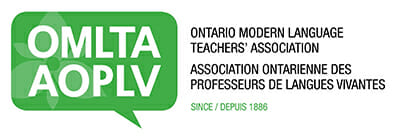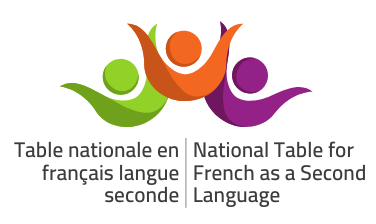Project Overview
- Research topics
- Region: Quebec and Ontario
- Project Overview

Project status
- Completed :
- June 2021-March 2022
Project manager or
resource person
- Jordan Sloan
- Second Vice-President
Partner organization(s)
Ontario Modern Languages Association (OMLTA)
Mentoring for All Professional Learning Modules: Dare to Unmute FSL Module Series
In 2020, the OMLTA and the MLC came together to complete Phase 1 of the Mentoring for All Project, resulting in the creation of three professional learning modules that empower principals, New Teaching Induction Program (NTIP) leaders, learning coaches and mentors to support new FSL teachers.
Building on Phase 1, the objective of Phase 2 was to develop three additional modules and provide learning sessions to introduce them to FSL Educators and those that support them, from across the province. This FSL-focused mentoring project complements and addresses gaps in the existing resources available for new teachers and their mentors.
Three research-based modules, titled "Dare to Unmute FSL" were created, along with associated resources such as a Viewer’s Guide and webinar, and are available on the OMLTA website. The modules include:
Module 1: Exploring Equity, Diversity, and Intercultural Awareness through the Culture Component of the FSL Curriculum
In the first module, participants reflect on identity so that teachers can take account of their positionality and how identity informs FSL pedagogy and learning. A focus on intercultural understanding and awareness and Culturally Relevant Pedagogy as complementary pedagogical stances allow the exploration of anti-oppressive teaching strategies and developing critical consciousness so that teachers are able to make connections to the FSL curriculum and develop a mindset to explore identity and culture.
Module 2: Effective Instructional Practices for In-Person, Hybrid and Virtual Settings
In the second module, participants focus on classroom practices that include the principles of the CEFR to develop meaningful and relevant tasks that learners could face in everyday situations. Universal Design for Learning is explored to ensure success for all learners in FSL classrooms by reducing barriers to learning, building student confidence and developing communication competencies. Instructional technologies are leveraged to provide differentiated learning opportunities with multiple means of engagement, representation and expression with a focus on the premise that learning is learner-centred so that teachers can honour learner variability and provide engaging and inspiring learning opportunities. The module concludes with a discussion on anti-oppressive, asset-based approaches to assessment and evaluation to ensure that assesment is faire, equitable and transparent so that all learners feel empowered to take responsibility for their own learning of the French language.
Module 3: Developing Dynamic Action-Oriented Tasks that Meet the Needs of All Learners
The third module provides educators with background and tools, using real examples, that will help them to conceptualise the scope of Action-oriented tasks. Through this learning, educators will have the information needed to plan and execute Action-oriented tasks ensuring inclusive approaches and steps for all learners to be successful in a meaniningul way.
The overarching theme of these modules is increasing learner engagement and success by designing and delivering curriculum through the lens of equity and inclusion. To further support the use of these modules with FSL educators, a Facilitator’s Guide with an accompanying webinar presentation was created. This additional module will guide those that support FSL educators in how to best explore the materials, to dig deeper and to guide deeper conversations.
Targeted Results
Main takeaways (learnings)
The FSL Curriculum has a level of depth for the exploration of not only the development of an additional language, but also for the exploration of diversity and culture in various French-speaking regions. Although an interesting and important part of the curriculum, it is an omen overlooked, or explored at a surface level. There remains a need to continue to delve into the materials, resources, and professional learning around this important part of FSL learning.
Potential/desired collaborations
- To underscore the importance of this learning—the more we can share and get it out there and continue the conversation, the better for our learners.


